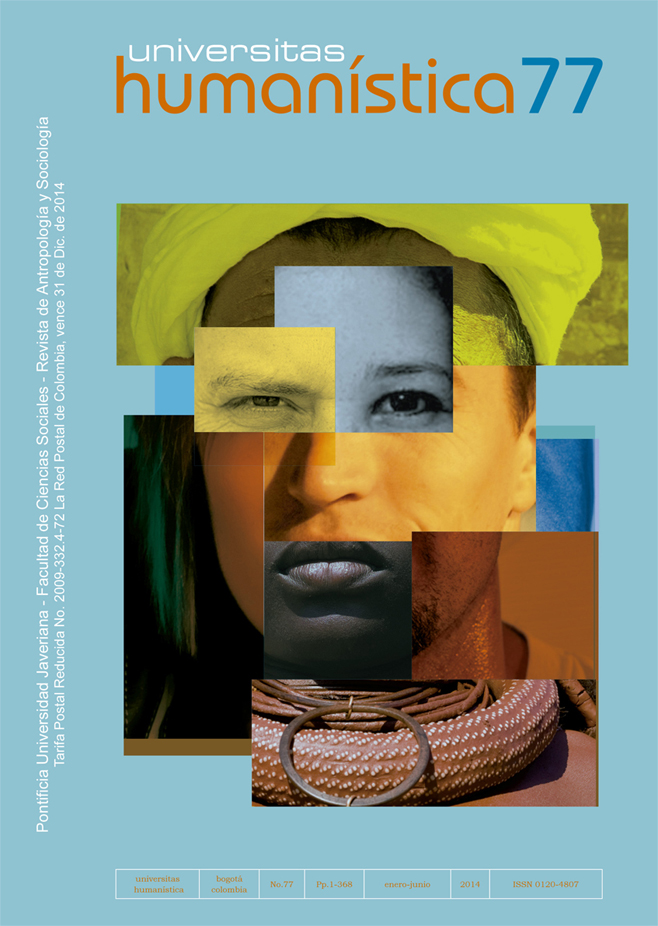Resumen
En este artículo reflexionaremos acerca de dos exposiciones temporales llevadas a cabo en las instalaciones del Museo Nacional de Colombia, a partir de discusiones sobre el multiculturalismo, los procesos de patrimonialización, la nueva museología y la política de la representación. Por una parte, trataremos el caso de Velorios y santos vivos. Comunidades negras, afrocolombianas, raizales y palenqueras y, por otra, Del monumento al pensamiento. Patrimonio de Colombia para la humanidad, dos experiencias expositivas que dan cuenta de formas diferentes de concebir la nación pluriétnica y multicultural, tanto en el proceso de producción, como en el producto final presentado al público
y que a su vez, evidencian los retos a los que se enfrenta esta institución estatal al buscar plasmar la lógica de la afirmación y la valorización de las diferencias introducida en la Constitución de 1991
y en la política de salvaguardia del patrimonio cultural inmaterial (PCI).

La revista Universitas Humanística se encuentra registrada bajo la licencia Creative Commons Reconocimiento 4.0 Internacional. Por lo tanto, esta obra se puede reproducir, distribuir y comunicar públicamente en formato digital, siempre que se reconozca el nombre de los autores y a la Pontificia Universidad Javeriana. Se permite citar, adaptar, transformar, autoarchivar, republicar y crear a partir del material, para cualquier finalidad (incluso comercial), siempre que se reconozca adecuadamente la autoría, se proporcione un enlace a la obra original y se indique si se han realizado cambios. La Pontificia Universidad Javeriana no retiene los derechos sobre las obras publicadas y los contenidos son responsabilidad exclusiva de los autores, quienes conservan sus derechos morales, intelectuales, de privacidad y publicidad.
El aval sobre la intervención de la obra (revisión, corrección de estilo, traducción, diagramación) y su posterior divulgación se otorga mediante una licencia de uso y no a través de una cesión de derechos, lo que representa que la revista y la Pontificia Universidad Javeriana se eximen de cualquier responsabilidad que se pueda derivar de una mala práctica ética por parte de los autores. En consecuencia de la protección brindada por la licencia de uso, la revista no se encuentra en la obligación de publicar retractaciones o modificar la información ya publicada, a no ser que la errata surja del proceso de gestión editorial. La publicación de contenidos en esta revista no representa regalías para los contribuyentes.


